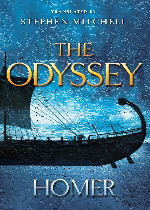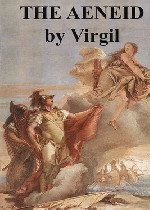
The Odyssey (/ˈɒdəsi/; Greek: Ὀδύσσεια Odýsseia, pronounced [o.dýs.sej.ja] in Classical Attic) is one of two major ancient Greek epic poems attributed to Homer. It is, in part, a sequel to the Iliad, the other work ascribed to Homer. The Odyssey is fundamental to the modern Western canon; it is the second-oldest extant work of Western literature, while the Iliad is the oldest. Scholars believe the Odyssey was composed near the end of the 8th century BC, somewhere in Ionia, the Greek coastal region of Anatolia.

“The Aeneid” is considered by some to be one of the most important epic poems of all time. The story is as much one of the great epic hero, Aeneas, as it is of the foundation of the Roman Empire. Aeneas, a Trojan Prince who escapes after the fall of troy, travels to Italy to lay the foundations for what would become the great Roman Empire. Virgil’s “Aeneid” is a story of great adventure, war, love, and of the exploits of an epic hero. In the work Virgil makes his commentary on the state of Rome during the Rule of Augustus. It was a time that had been previously ravaged by civil wars and with the reign of Augustus order and peace had begun to be restored. That order had a price though. Many of the freedoms of the old Roman Republic had been lost under the new Imperialistic Rome. This loss of freedom and the debate over the virtues of a Roman Republic versus an Imperialistic Rome was central to Virgil’s time and is interwoven throughout the poetic narrative of “The Aeneid.” Virgil’s work forms the historical foundation for the argument of the empire over the republic as the best form of government. This edition is translated into English verse by John Dryden, includes an introduction by Harry Burton, and is printed on premium acid-free paper.